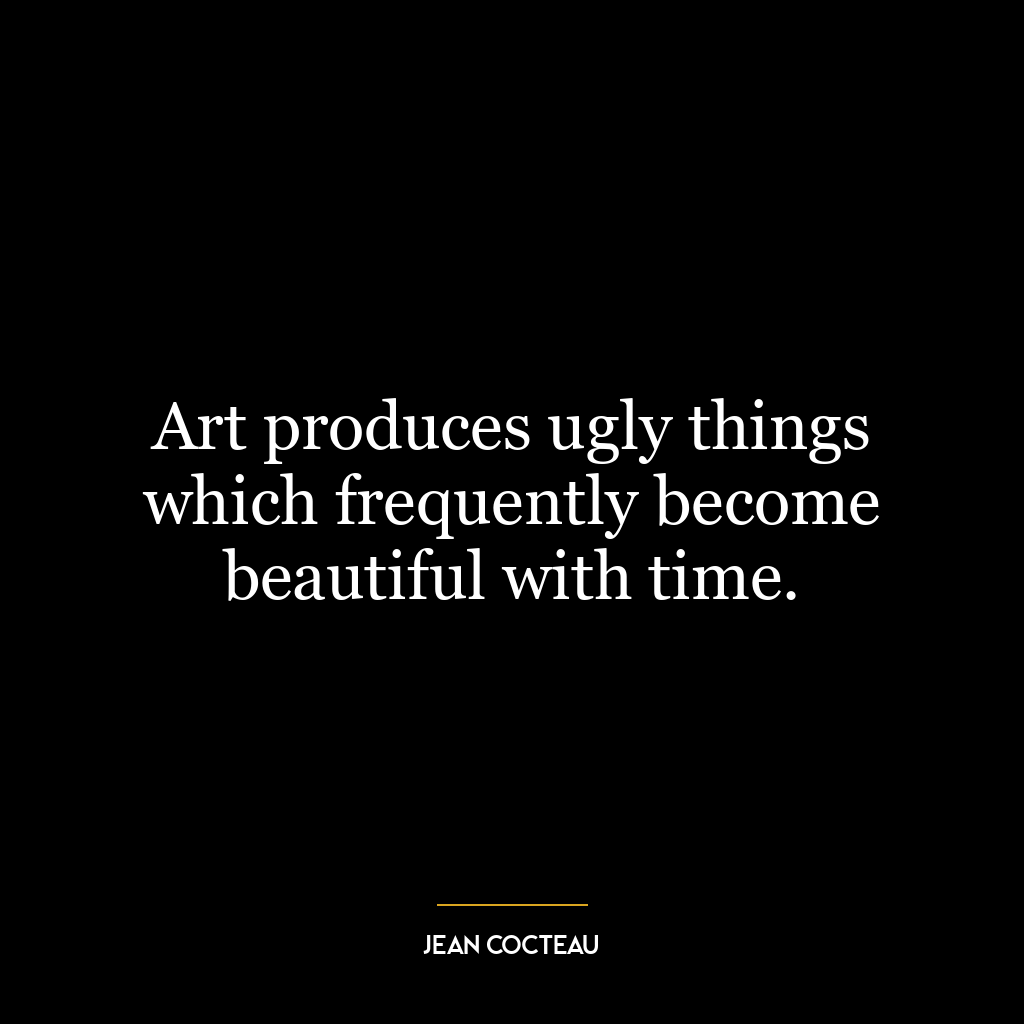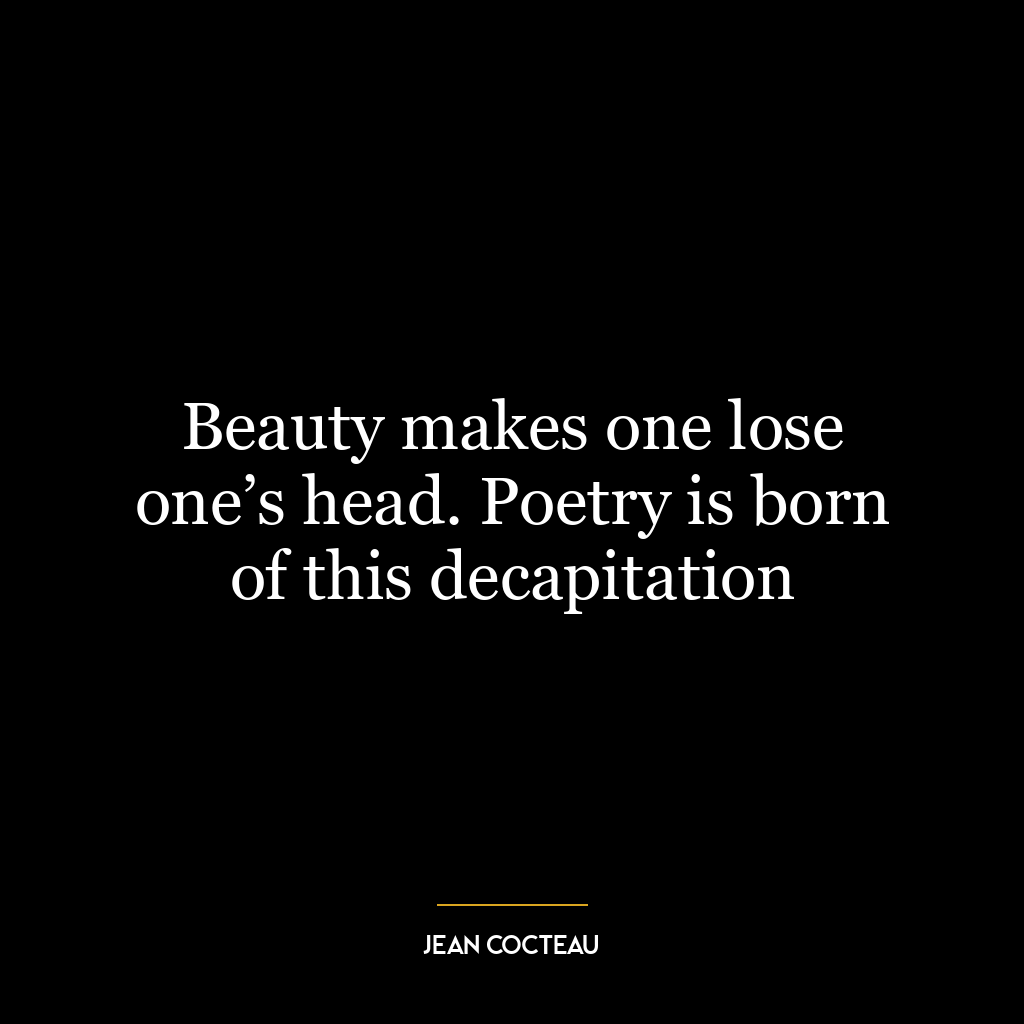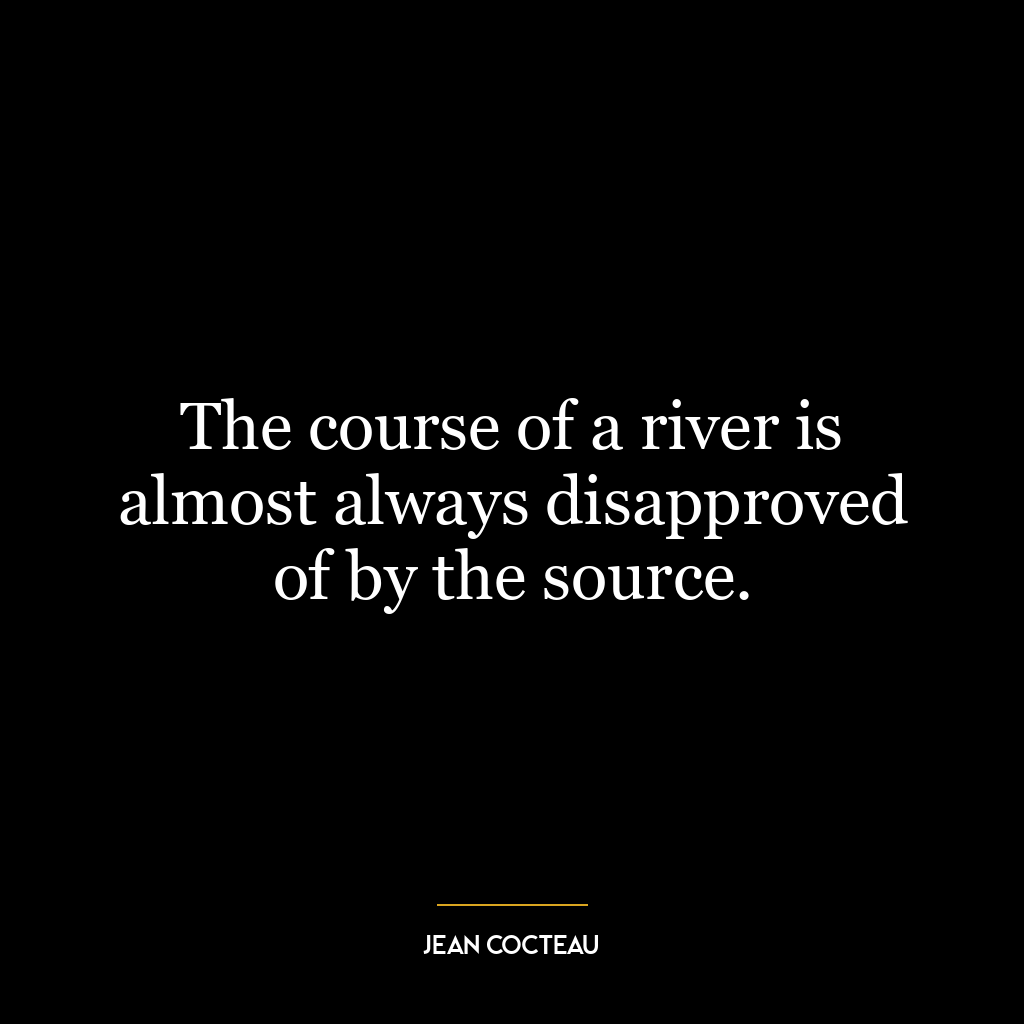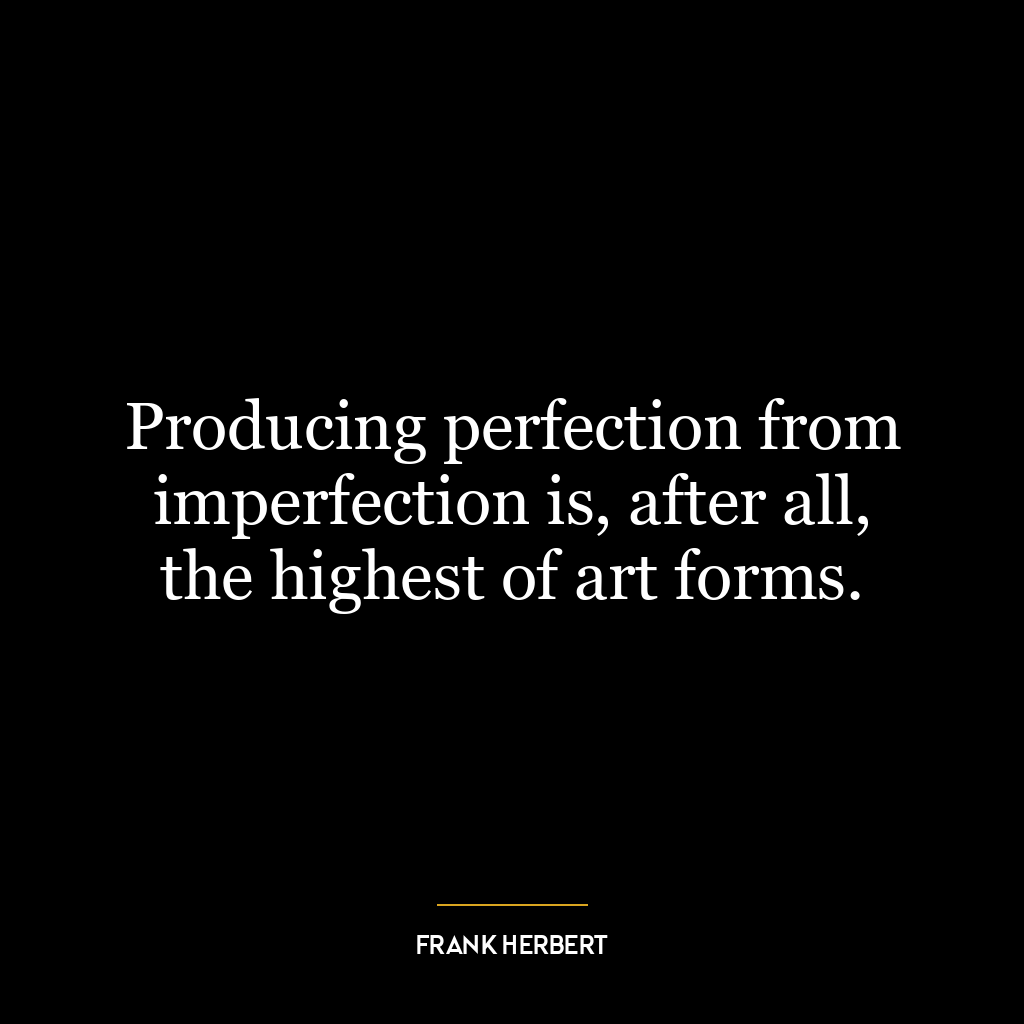The more you mature, you realize that this imperfections make your more beautiful.
This quote emphasizes the concept of beauty in imperfection. It suggests that as we grow older and wiser, we begin to appreciate our flaws more, recognizing them as unique aspects of our individuality that contribute to our overall beauty. This concept is rooted in the Japanese aesthetic of ‘wabi-sabi,’ which finds beauty in imperfection and transience.
In a broader sense, this quote challenges the societal standards of perfection by asserting that our imperfections, which society often urges us to hide or fix, are actually what make us more beautiful. It promotes self-acceptance and self-love, encouraging us to embrace our flaws as integral parts of our individuality.
Applying this to today’s world, this quote is a powerful antidote to the culture of perfectionism propagated by social media and mainstream media. It encourages us to resist the pressure to conform to unrealistic beauty standards and to embrace our authentic selves.
In terms of personal development, this quote encourages us to shift our perspective on our flaws. Instead of viewing them as something to be eliminated, we can view them as something to be embraced and celebrated. This shift in perspective can lead to increased self-esteem and self-confidence, as well as a more authentic and fulfilling life.
Moreover, acknowledging our imperfections can also foster growth and development. By recognizing our flaws, we can identify areas for improvement and work on them, thereby becoming better versions of ourselves. Thus, in a paradoxical way, our imperfections can serve as catalysts for personal growth and development.












